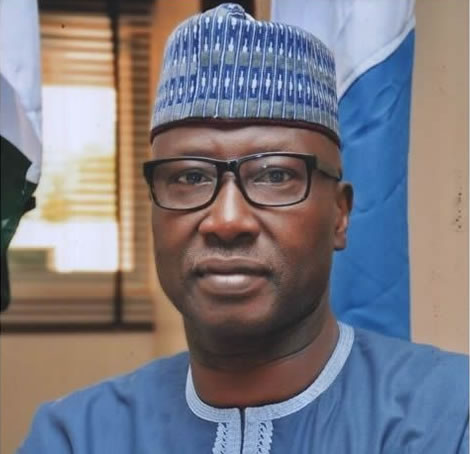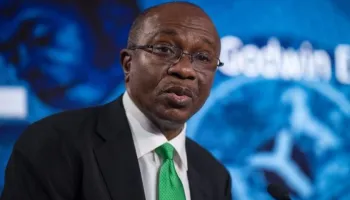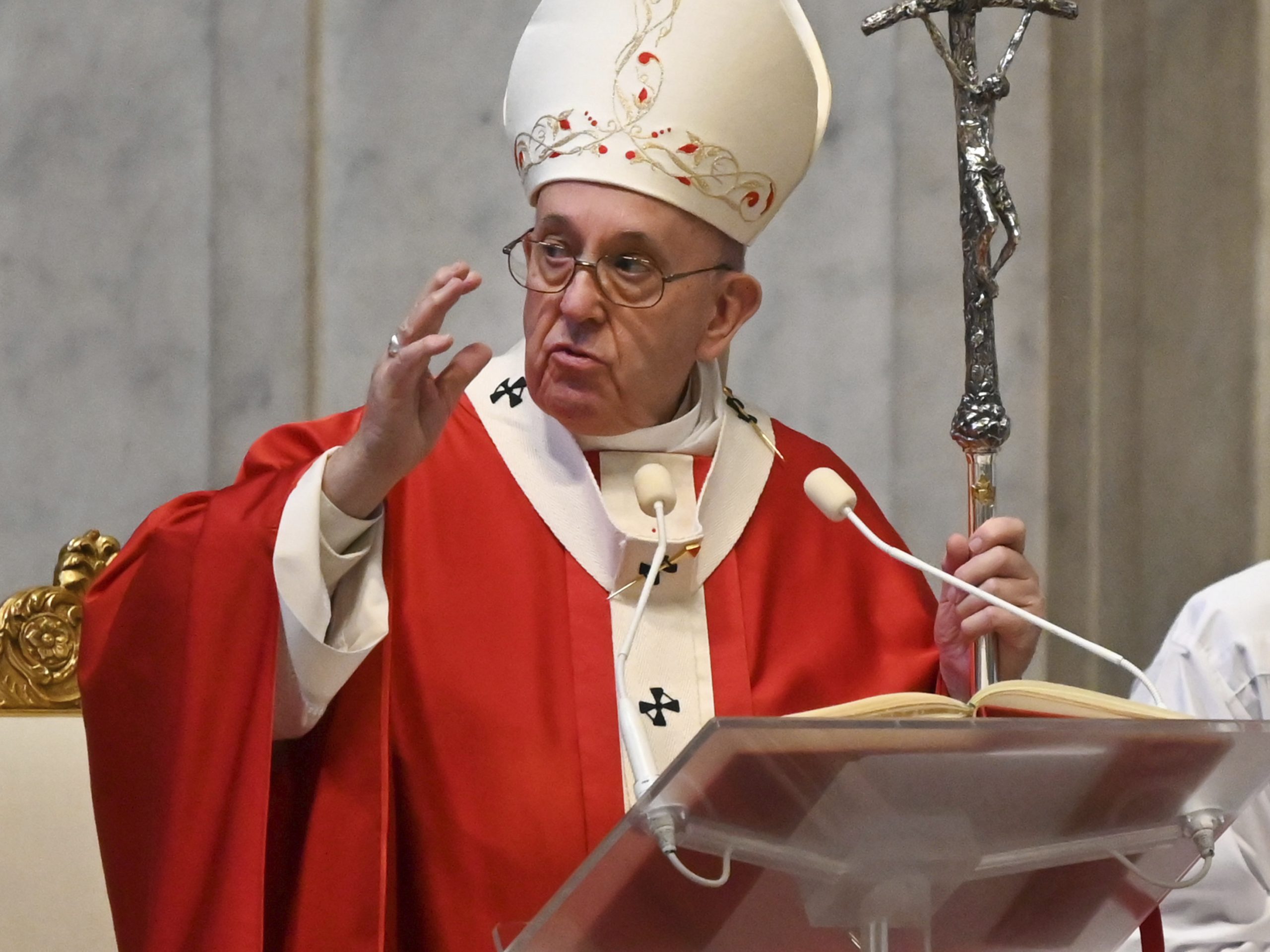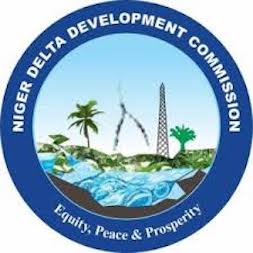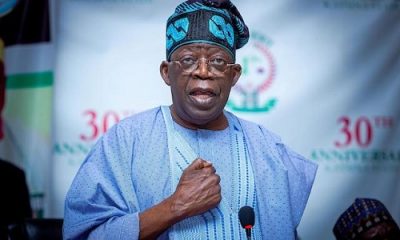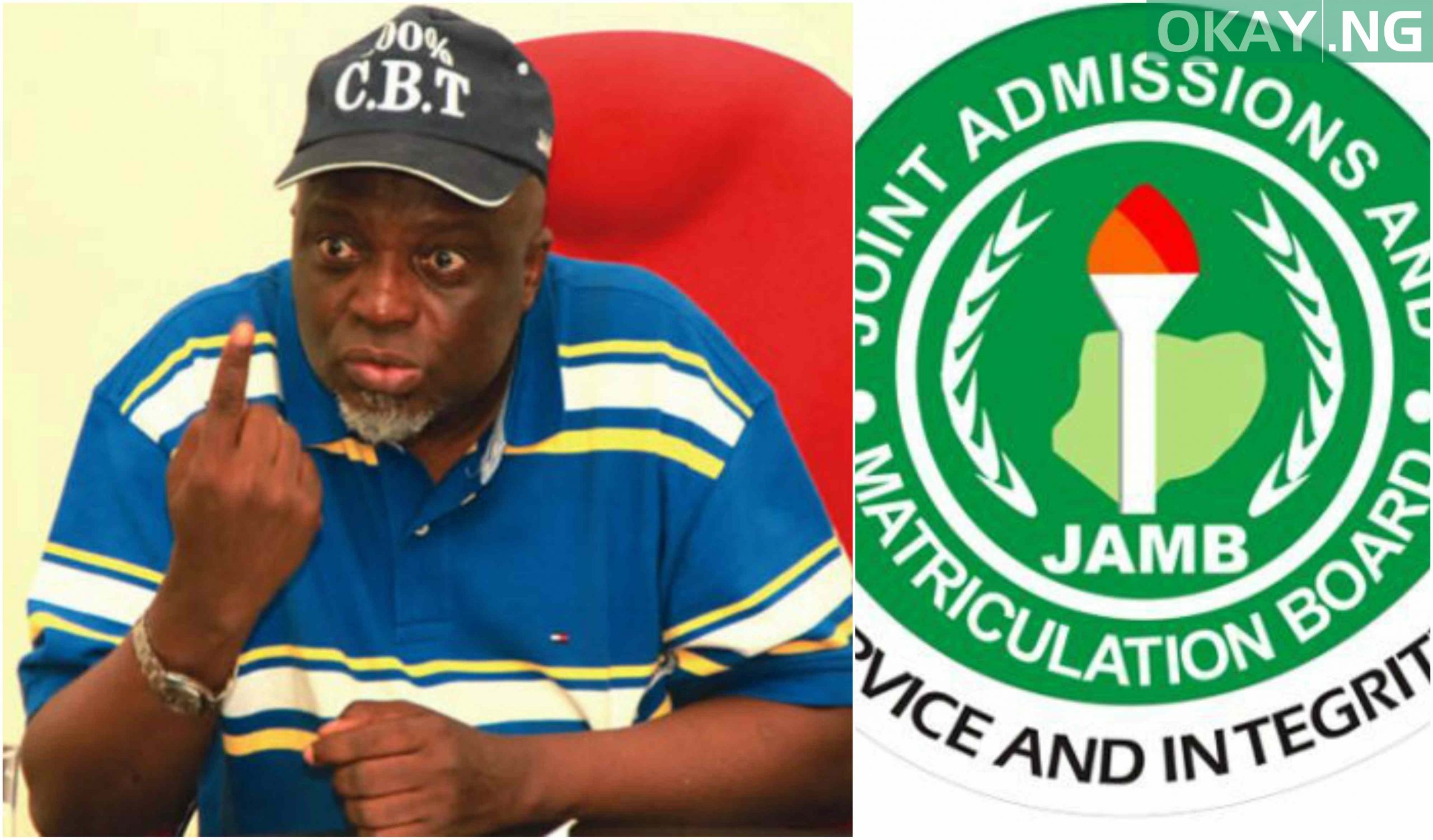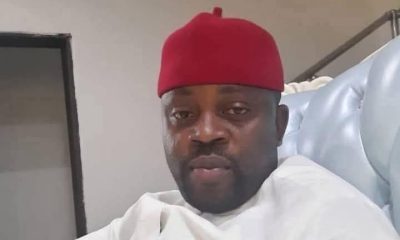OPINION
Buhari: How Not to Fail

By Festus Adedayo
President Muhammadu Buhari made one of the most down-to-earth statements of his presidency last Thursday, though by proxy. After meeting Nigerian security chiefs at the Aso Rock Villa, the National Security Adviser, (NSA) Babagana Monguno, claimed Buhari said that he dreaded failure in office, so much; and I dare literalize it, like leprosy.
“And (President Buhari) also made it very, very (italics, mine) clear that he’s not ready to exit government as a failure,” Monguno said.It was an opportunity for Monguno to thump the Buhari government’s chest. President Buhari, said Monguno, is very happy about the “tremendous success” he has achieved in the fight against insecurity.
“It is evident that a lot of successes have been recorded,” Monguno, known for his bombasts, announced. He based these “successes” on what he called the “large numbers of people surrendering in the north-east as a consequence of the relentless efforts of the armed forces, intelligence and security agencies.” Monguno went further: The president had also been “briefed” on the “emergency situation” of the ravaging hunger in the land.“As far as he is concerned, it’s also an emergency situation that people should not be left to wallow in hunger, and in despair, this is something that he’s also going to look into. And he’s going to use all the necessary, all the relevant tools at his disposal to address the issue of widespread hunger,” said the Nigerian topmost security chief.
Monguno is taking us to class this morning as he has provoked the need to interrogate the concept of failure. What is failure? At what point in life is someone said to have failed? Is it ennobling to fail or, put differently, is failure noble? Is there any aesthetics in failure? In other words, should those who fail see some glamour in failure, or more succinctly, is there a philosophy of failure?
Now, using the Monguno claim of a Buhari who doesn’t want to end his tenure of office a disaster, a tenure soon to end in less than two years time, how feasible is this claim? My departing point of analysis is this famous song by late pop diva and ex-Regent of Ikogosi in Ekiti State, Bunmi Olajubu. Sang in the early 1990s and entitled Bata Mi A Dun Ko ko Ka, this song articulates what, in grim terms, are the features of success and failure, especially in the cosmology of the Yoruba people.
In the enviable world of the been-tos of the 1960s and 1970s Nigeria, what distinguished this class of people, who were just arriving Nigeria from their search for the golden fleece abroad, among others, was their stiletto shoes which made ko-ko-ka sound as they approached. This was markedly different from the uninspiring noise made by the salubata slippers of those who had no attainment, who didn’t go to school and whose approaching walks as they plodded on, in Olajubu’s song, was signified by the mere onomatopoeic perere noises of their slippers.
Using Olajubu as a paradigm and taking into consideration the Monguno’s claim of Buhari’s aversion for ending up in 2023 as a colossal failure, are the president’s shoes already sounding ko-ko-ka, making the perere noise or will ultimately do so?
Recently, I read Femi Adesina, Special Adviser on Media’s eulogy of his boss’ infrastructural interventions which he relishes as sine non qua non among contemporary Nigerian presidency. If you travel with Adesina on this route, you may easily be infected by this adumbration of what success is, assuming it to be the true meaning of success. Passengers who travel in Buhari’s commendable railway trains cannot but become prisoners of this mindset. For decades, successive governments watched the Nigerian railway system die.
Forget the insinuations that China is on a second slave raid of Africa and Nigeria is one of its captives with the multiple of billions incinerated to get these railways. Forget also that, judging by the age-long symbiotic graft culture of China and Nigeria, billions in graft must have lined the pockets of those entrusted the task of these railway projects. Forget also that though there is a railway route from Kaduna to Maradi in Niger Republic, there is not even a functional railway in Nigeria’s south-east, Buhari the master finisher, in the words of Adesina, has finished Nigeria with railways. Same suffices with the Second Niger Bridge, Lagos/Ibadan expressway and many others, a la Adesina. The question to ask is, are these what define a president as successful? Are they the indices, the observance of which makes a leader to escape being called a failure?
The truth is, as individuals, as a nation, as a state, as leaders, we determine whether we want to be successful, ab initio. In some other cases, we determine in our minds to be successful but unconscionably tread the path of failure. Take for instance the circumstance of young Muhammadu. History tells us that he started off as a cow boy, a herdsman if you like in today’s Katsina state. At a point in his life, he decided to tread a different route from his herder peers. He enrolled to go to school and passed out of secondary school. As he vied to write the Nigerian Army Qualifying exam in 1961 at age 18, his choice was to be a success as a military man. Coup had become Africa’s pastime then, with the overthrow of Togo’s Sylvanus Olympio and Nigeria’s Tafawa Balewa. Perhaps Buhari had in mind that someday he would be a General in the army and become a military Head of State. He was a success in this regard as he achieved the two ambitions. Many of his herder mates of the period in the village today cannot unbuckle his sandals and are spent and broken That is success.
Having been ridden roughshod upon in 1984 and torn off power like you do a sodden rag by Ibrahim Babangida and his coupist colleagues, Buhari apparently wanted to come back to power. Thrice when he was denied, he wept like a melancholic baby. Those who believed in him thought the tears were shed for Nigeria’s loss of his kind of leadership. Six years down the lane after he became president, the narration has assumed a teary dimension. The twine that binds Nigeria’s three dominant but fissiparous ethnic groups together has lost its tether under Buhari. Nigeria had never been this divided along ethnic fault lines since amalgamation and the challenges of the country had never received this level of ethnicization.
It will be selfish and uncharitable to lay all blames by the feet of Buhari. Nigeria was not wired to be peaceful by Britain. All that the colonialists wanted us to do, in the word of Immortal Bob Marley, was to “keep on fussing and fighting.” From Tafawa Balewa to Goodluck Jonathan, Nigerian rulers worsened the British quicksand Nigerian superstructure. But pre-2015, Nigerians still retained some modicum of affection, love and admiration for one another. All these things bright and beautiful, all our togetherness great and small, all the Nigerianness that were bright and beautiful, Buhari smashed them all into pieces. How did he do it?
His body language. Buhari is grossly insensitive to Nigeria’s diversity. First is that, most likely because he has complex for A-list aides, associates and ministers, his choice of cabinet members and aides is less than meritorious. He lusters in an assemblage of aides and advisors who have no minds of their own. Even Jonathan, with his burnished ignorance, didn’t possess that level of complex and surrounded himself with people who could hold their own in the world.
Second is Buhari’s rabid tribal bigotry. Pass mark for appointment into critical offices, for him, is region and religion. Daura is A-pass mark for Buhari. These less than forward-looking people he surrounds himself with, coupled with his limited oeuvre, is what signify what is called gravitation towards the path of failure. You cannot oscillate among a combine of failure and you won’t fail. For you to qualify to climb high in Buhari’s mind, you have to first and foremost be Fulani, from the North, then a Muslim. Thus, it is not unlikely that you will see passion-full people from Daura and environs clapping and saying rankadede to Buhari while he made a spiffy show of walking on Daura streets during Sallah.
The Controller General of Immigration, Muhammed Babandede, from Jigawa State, will be going on retirement on September 21, 2021, after initial extension of office by Buhari. Since its inception, the North has appropriated headship of that organization. When Buhari appoints Babandede’s successor presently, it will be another rankadede. That is how ethnic bigotry defines appointments into offices under Buhari, in contravention of global indices of adjudging leadership.
The Council on Foreign Relations (CFR), and the Harvard Kennedy School in the United States, for instance, have concluded that Nigeria was at a point of no return and manifesting all signs of a failed nation. By extrapolation, Buhari is a failed leader, they insinuated. In the research conducted by their senior fellow and former US Ambassador to Nigeria, John Campbell and founding director, Robert Rotberg of the Harvard Kennedy School’s Programme on Intrastate Conflict and president emeritus, World Peace Foundation, they even maintained that Nigeria under Buhari was in its final phase and would eventually collapse.
Many of the afflictions that today plague Nigeria under Buhari are unexampled in modern history. Naira is far becoming a replica of the Zimbabwean dollars under Bob Mugabe, falling unaided like an acrobat. Hunger, which Monguno referred to, is wracking the bellies of Nigerians and lack had never been this pervasive. Forget that chest-thumping by Monguno, insurgency has almost crippled the north, with some parts of Nigeria in the hands of these jihadist bombers. So when Buhari and his commissars flaunt infrastructure as index of his success in office, they are either talking out of naivety or plain wickedness.
If Buhari didn’t construct a single meter of railway, no single kilometer of road, nor even a length of bridge but strengthened our togetherness as a people, even if he was regarded as an infrastructural failure, he would be a noble failure. If this then is so, Nigerians, would be said to prefer a noble loser to a vindictive loser.
OPINION
This Trial of Oloyede
By Tunde Akanni
It’s been traumatic for my entire family since that video started making the rounds. I sneaked a slight view… It’s our trial. It’s my trial. Oloyede is genuine. He is most sincere. He is modestly so, as well. For us, however, Allah knows best.
I was with a trader in the afternoon of what I considered a dark Wednesday, the 14th of May. “Se bi won ni JAMB o get mo bayi…”. I had to cut in immediately. Which JAMB? “Madam, that’s one person I will vouch, and vouch for…zero tolerance for corruption. Absolutely responsible with a high level of consciousness for the good of others. If certain things went wrong at JAMB, I agree it’s his responsibility to carry all pleasant and other burdens but just know that the bad side of the operations may as well be sabotage. I have absolute trust in that man. Ask my own colleagues about me, but Oloyede is my own hero, somebody I have known for more than 40 years…”This is by no means a reductionist disposition to the tragedy induced by the so-called computer glitch. May the Almighty God in His infinite mercy console the parents of the candidate reported to have committed suicide. May God strengthen them to survive this gloomy phase of their lives and sustain them to reap bountiful compensation that will endure in their lives. It’s hard, so hard to pull tragedies of this magnitude. I personally feel for these parents.The said computer glitch, may we never fall victim to it. Those who work for big organisations requiring a large layout of ICT operations know what I’m talking about. Rather than being ‘solutional’, IT facilities can be unimaginably problematic sometimes, yet indispensable in this civilisational dispensation. This is not doubting deliberate sabotage, as may have happened in the case of JAMB. I’ve been part of Oloyede’s JAMB journey to attest to his commitment to offer his best for the otherwise sinking board.Far from being cosmetically exhibitionist, the Oloyede-led JAMB team, led by the Education minister, Tunji Alausa, went round the critical facilities of JAMB during the just concluded examination. Alausa saw, firsthand, like never before elsewhere in this country, how far JAMB had gone in its strive for transparency and the real-time monitoring of the conduct of examinations nationwide. Alausa, beyond being in awe, sought to make the JAMB effect spread immediately to other examination bodies.No be dem say, same day, the WAEC team came to JAMB and made it into the situation room, which was my own duty post. The NECO team followed suit afterwards, both duly led around by the sturdy lead IT consultant who’s been reliably there from Oloyede’s assumption of duty, Damilola Bamiro. Far richer, given that they charge more for their exams, the duo of WAEC and NECO were suddenly mandated to understudy the examination sector leader in Africa that JAMB has become over time.The staff of both WAEC and NECO suddenly had to undertake a professional excursion led through all the real time monitoring screens and other digital facilities. It was obvious they marvelled at what they saw, revealing a functional leader-subordinate synergy manifest with trendy output that the world can see and learn from.But that may even seem like the tip of the iceberg of the output of the hard work and commitment of the nation’s foremost icon of integrity in public service. A series of far more seemingly serious strides had been accomplished by Oloyede at JAMB. As a focused scholar, he keeps ensuring that every bit of the experience of the Board is treasured as worthy data to guide future actions and even subjects for further research.Not even the agencies dedicated to emergency matters in Nigeria could have been as prompt as the Oloyede management on this ugly glitch saga. Once the complainants began ventilating into the public space, JAMB rose to the challenge without any predictably traditional arrogant stance of government is always right. I was aware that a particularly strident public critic and a former students’ leader at Obafemi Awolowo University, Adeola Soetan commended the spokesperson for JAMB for the excellent handling of public complaints.Promptly, an independent team of investigators was set up to unravel the mystery leading to the rather depressing situation that now confronts us. The team, drawn from assorted but technically relevant constituencies, has found out that no fewer than 165 centres of over 800 examination centres nationwide were affected.Obviously well prepared for whatever the outcome may turn out to be, he braced up to the challenge to embrace the surrender value to tell it to the world as it is. This trial is for all of us who believe and trust Oloyede. I am in this group. So much so that his public cry infected me…It was a patriot’s cry for his beloved country. Like me, a former Law don at LASU, Dr Kilani wasn’t any less affected as demonstrated in a quick note to me: “I write to associate myself with the pain, sorrow and emotion of our own Professor Oloyede. I could not hold my tears seeing him cry. May Almighty Allah see him through. May we all not be put to shame…”But then came a soothing message from Gbade Osunsoko, my cousin: “…He will come out of this much stronger because Nigerians will trust him far better than a number of our leaders.. A man that makes mistakes happens under him and takes responsibility – it’s a big deal in Nigeria.”With Oloyede, young Nigerians with challenges regarding sight are no longer left to moan their fate endlessly, with adequate provision for their inclusion in the UTME. How many of our public facilities are this inclusion conscious as stipulated by SDGs? How come a legacy built through almost a decade at the very best cost ever possible will be made to crumble when the game changer leader remains ever modest? JAMB has steadily risen through thick and thin to accomplish its tasks to the admiration of stakeholders, nationally and internationally, under Oloyede. Both NNPC and the Nigeria Police, being beneficiaries, can attest to the current competence of JAMB. How many other numerous stakeholders nationwide never deemed to have any relevance to JAMB before Oloyede but have since become critical, if not indispensable players?But why does this sudden saddening encounter threaten our joy of service without blemish? Why this unforeseen truncation of a good story, so intentional, coming from Africa? Whodunnit? Surely the truth shall come out for the world to perceive and assess and get to appreciate the efforts and the quantum of commitment appropriated to the JAMB excellence project driven by Oloyede.One cannot but be deeply concerned. Before the very eyes of a few of us carefully selected to give support from our respective professional perspectives from the very beginning, Professor Oloyede’s concern for genuine growth and development was real. It is still real and increasingly so, as a matter of fact. Indeed, inimitable. It shall be well.Tunde Akanni is a professor of Journalism and Development Communications at the Lagos State University, LASU. Follow him on X:@AkintundeAkanniOPINION
Democracy, Institutions, and the Rule of Law

By Kator Ifyalem
Democracy, often hailed as the cornerstone of modern governance, is a system that empowers citizens to participate in the decision-making processes that shape their lives. However, the mere existence of elections is not enough to ensure a fair, just, and prosperous society.
Without robust institutions, the rule of law, and ingrained values, democracy can become a hollow shell, susceptible to corruption, manipulation, and eventual collapse. At its core, democracy is built on the principle that power resides with the people. This power is exercised through fair elections, where citizens choose representatives to govern on their behalf. The effectiveness of this system relies heavily on the strength of supporting institutions, adherence to the rule of law, and shared values that guide societal behaviour.Institutions serve as the backbone of a democratic society, translating the will of the people into action. These include governmental bodies such as the legislature, executive, and judiciary, as well as independent organizations like electoral commissions, anti-corruption agencies, and human rights commissions. These institutions provide checks and balances, ensuring that no single entity or individual can accumulate too much power. They create a framework for accountability, transparency, and effective governance.An independent judiciary is crucial for upholding the constitution and protecting individual rights. Without it, laws can be manipulated or ignored by those in power, leading to tyranny. Similarly, a free and independent media acts as a watchdog, informing citizens and holding those in power accountable. When media institutions are weakened or controlled by vested interests, the flow of information is compromised, and citizens are unable to make informed decisions.The rule of law is another critical component of a functioning democracy. It ensures that all citizens, regardless of their status or position, are subject to the same laws and legal processes. This principle is fundamental to creating a fair and just society where everyone’s rights are protected. A robust legal framework, consistently and fairly enforced, provides the predictability and security necessary for social and economic development. It protects property rights, enforces contracts, and creates an environment conducive to investment and growth.Moreover, the rule of law is essential for protecting minority rights and preventing the tyranny of the majority. In a true democracy, the rights of all citizens must be respected, even if they are not part of the ruling majority. This protection is enshrined in laws and enforced through effective legal institutions.Values form the third pillar of an effective democracy. These shared beliefs and principles guide societal behaviour and inform policy-making. Democratic values include respect for human rights, tolerance of diversity, commitment to justice, and belief in the equality of all citizens. When these values are deeply ingrained, they act as a safeguard against authoritarian tendencies and help preserve the integrity of democratic institutions.For instance, a healthy democracy can be likened to a three-legged stool, where institutions, the rule of law, and democratic values form the legs. Just as a stool cannot stand stably without all three legs being strong and balanced, a democracy cannot function effectively if any of these elements is weak or missing. In Nigeria’s case, we’ve seen how weaknesses in one area, such as institutional challenges in election management, can put stress on the other legs, requiring the judiciary (rule of law) and civil society (democratic values) to bear more weight to maintain stability.Education plays a crucial role in instilling these values. A well-informed citizenry, aware of their rights and responsibilities, is better equipped to participate meaningfully in the democratic process. Civic education programs that teach the principles of democracy, the importance of institutions, and the value of the rule of law are essential for creating engaged and responsible citizens.The interplay between institutions, the rule of law, and values creates a self-reinforcing cycle that strengthens democracy. However, this cycle can also work in reverse. Weak institutions often lead to a breakdown in the rule of law, eroding democratic values and further weakening the system. This negative spiral will ultimately lead to the collapse of governance, even if the outward trappings of democracy remain.To prevent this decline, concerted effort is required on multiple fronts. Institutional capacity must be built and maintained through adequate funding, training, and support. The rule of law must be consistently enforced, with mechanisms in place to address corruption and abuse of power. This requires not only strong legal frameworks but also a commitment to their implementation.International cooperation also plays a role in strengthening democracy. Countries learn from each other’s experiences, share best practices, and provide support for development. However, it’s crucial to recognize that democracy cannot be imposed from outside; it must be nurtured from within.True democracy requires more than just the act of voting; it demands a comprehensive system of governance that respects the rights of all citizens, upholds justice, and promotes the common good. Strengthening these fundamental pillars (institutions, the rule of law, and values), is crucial in building more resilient, effective, and truly representative democracies that serve the needs of all citizens and contribute to global stability and prosperity. Where does Nigeria as a nation stand on this scale?OPINION
Reshaping Nigeria’s Student Loans for Inclusive Access

By Tosin Kolade
In June 2023, President Bola Tinubu signed the Student Loan (Access to Higher Education) Act into law, marking an important step forward in the country’s approach to financing tertiary education.The initiative was designed to provide interest-free loans to students in higher institutions, thereby expanding access to education for financially disadvantaged youth.
However, nearly two years on, the scheme’s implementation remains burdened by challenges, prompting growing concern and debate among stakeholders. In response to criticism of the original law, the Federal Government repealed and re-enacted the Act in April 2024.The revised legislation established the Nigerian Education Loan Fund (NELFUND) as a corporate entity responsible for managing and disbursing the loans.Notably, the amended version eliminated restrictive eligibility criteria such as income thresholds and guarantor requirements.It also extended the scheme’s coverage to include students enrolled in government-accredited vocational training centres.To streamline access, the application process was simplified, requiring only a valid National Identification Number (NIN) and Bank Verification Number (BVN).Hence, all submissions were made via the NELFUND portal.In spite of these improvements, the scheme has continued to attract criticism.One of its most vocal opponents is the Academic Staff Union of Universities (ASUU).In a recent interview with a national daily, Dr Mwolwus Jurbe, Chairman of ASUU’s University of Jos chapter, outlined the initiative as “fundamentally flawed”.He argued that the scheme was unlikely to benefit its target groups, especially students from low-income families.“The scheme is pushing education out of the reach of the common man,” he said.Jurbe said that, amid high unemployment rates and soaring tuition fees, expecting repayments from indigent students was unrealistic.ASUU also raised alarms over reports that TETFund allocations might be redirected to fund NELFUND.The body warned that dismantling a functional funding mechanism in favour of an untested alternative could jeopardise the future of tertiary education in Nigeria.Meanwhile, the National Association of Nigerian Students (NANS), while generally supportive, has also expressed reservations.The association acknowledged the potential of the scheme to reduce dropout rates, but emphasised that the absence of scholarships or grants rendered it incomplete.NANS President, Comrade Olushola Ladoja, condemned the alleged mismanagement of NELFUND, calling for the dismissal of implicated officials and the publication of the 51 tertiary institutions reportedly involved.“Any vice-chancellor, rector or provost found culpable in the mismanagement of student loans must be removed from office.“Their actions sabotage the Federal Government’s effort to make education accessible to all,’’ Ladoja said.He urged Tinubu to probe the reported diversion of N71.2 billion and criticised NELFUND for excluding the national student leadership from key stakeholder engagements.Additionally, NANS called on the EFCC and ICPC to investigate the matter and advocated for a five-year post-NYSC loan repayment grace period, citing the employment difficulties faced by many recent graduates.Civil society groups have also raised concerns.The Education Rights Campaign (ERC) described the initiative as “badly thought-out, ill-conceived and fundamentally unworkable”.Hassan Soweto, National Coordinator of the ERC, lamented repeated delays in the loan rollout, calling it evidence of poor planning and political inertia.“It is a national embarrassment that almost a year after the law was signed, students are still waiting for funds,” he said.Worthy on note, trust in the scheme further eroded in August 2024 when it was revealed that no tertiary institution in the South-East had been included in the first phase of disbursements.Reacting, the Concerned Igbo Stakeholders Forum (CISF), led by Chukwuma Okenwa, condemned the omission as a deliberate act of marginalisation.Okenwa argued that excluding an entire geopolitical zone from a national programme violated the federal character principle.Although NELFUND claimed South-East schools had failed to respond to verification notices, the CISF rejected this explanation, insisting that at least one compliant institution should have been selected.Similarly, the Corporate Accountability and Public Participation Africa (CAPPA) expressed concern over NELFUND’s plan to limit eligibility to students in “high-demand” disciplines.Zikora Ibeh, CAPPA’s Senior Programme Manager, warned that the policy could marginalise students in the humanities, arts, and social sciences.“This approach risks deepening inequality by denying support to students whose fields may not be seen as immediately profitable but are crucial to national development,” she said.Also, controversy followed the announcement that the EFCC had donated N50 billion in recovered funds to the loan scheme.A Legal expert, Nnaemeka Ejiofor, cautioned that while well-intentioned, the EFCC lacked constitutional authority to reallocate recovered public funds without National Assembly approval.“Such actions, no matter how well-meaning, set a dangerous precedent,” he warned.Meanwhile, fee hikes across federal and state universities have exacerbated the financial burden on students and their families.In some cases, tuition fees have surged by as much as 1,000 per cent.A University of Lagos student, Michelle Njemanze, shared that her tuition rose from N16,000 to N196,000 in a single academic session.For many, the student loan scheme remains a promise yet to be fulfilled.Although the Tinubu administration allocated N200 billion to the scheme in the 2024 budget and appointed banking executive Jim Ovia as chairman of the NELFUND board, disbursement delays continued well into May 2025.In response to growing dissatisfaction, NELFUND recently announced a major overhaul of its application system.NELFUND Chief Executive Officer, Mr Akintunde Sawyerr, recently revealed that the agency was deploying a fully digitised, user-friendly platform to streamline the loan process and eliminate bureaucratic delays.“Education is a right, not a privilege; with this technology-driven model, we are establishing a transparent and efficient system that puts students first,” he said.Sawyerr added that the reforms aligned with Tinubu’s Renewed Hope Agenda, which prioritised educational access and youth empowerment.According to him, more than 320,000 students had already benefited from the scheme, with thousands more undergoing verification as operations scale-up.Looking ahead, NELFUND also plans to integrate its systems with institutional portals across the country.This collaboration aims to enable seamless data exchange, automate student record verification, and speed up loan processing.While recent reforms are encouraging, experts insist that sustained political will, transparency, and inclusive policies are essential to realise the full potential of Nigeria’s student loan scheme.They agree that, in theory, the loan scheme offers a vital opportunity to democratise access to higher education in Nigeria.In practice, however, its rollout has been hindered by legal ambiguities, implementation delays, and regional inequities.If these challenges remain unresolved, experts warn, the scheme may end up widening the very educational gap it was intended to close. (NAN)
